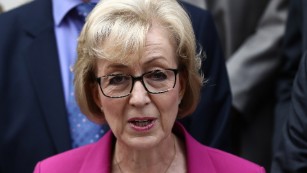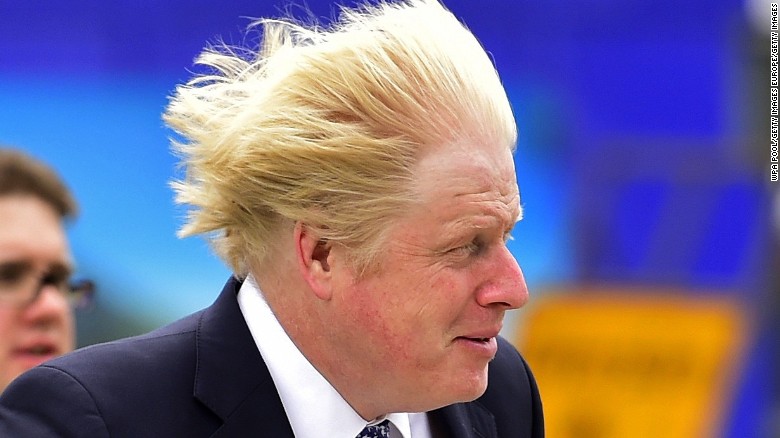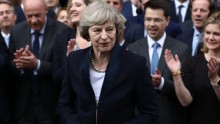Tests for Theresa May, Britain's next Prime Minister
Things have been going Theresa May's way lately. As a Remainer, she was on the losing side of the EU Referendum vote. But then she became the first of David Cameron's team to announce her bid to succeed him as Prime Minister and soon most of her rivals self-combusted.
Boris Johnson, the original favorite among the Brexiteers, was impaled on the dagger of his friend Michael Gove, who launched his own leadership bid with the damning statement: "I have come reluctantly to the conclusion that Boris cannot provide the leadership or build the team for the task ahead."
Gove then blew his chances with a clumsy attempt to get May supporters to vote tactically and keep Andrea Leadsom out of the final head-to-head leadership battle.

Andrea Leadsom MP
Finally, Leadsom too hurled herself onto the funeral pyre of would-be leaders with a newspaper interview crassly suggesting that being a mother gave her a greater stake in the future of the country than the childless May.
The media storm unleashed by that seems to have shocked Leadsom into agreeing with her critics that she was not sufficiently experienced to cope with the intense scrutiny at the top. She withdrew Monday, leaving May with a coronation rather than a contest.
That though was the easy bit. Pitched into 10 Downing Street weeks before she had expected, Theresa May faces a more daunting prospect than any peacetime Prime Minister has had to confront.

May's to-do list
Firstly, she must unite a party and a country still reeling from the 52%-48% Brexit vote that has divided families, age groups and communities. Since she voted for Remain, the Brexiteers will be watching her every move for any hint of backsliding. Arron Banks, a very wealthy key donor to the United Kingdom Independence Party, suggested he could lead a charge to raise £10 million ($12 million) to fight May.
Leaving the European Union
Then there is the question of the EU leaders with whom she must agree Britain's withdrawal terms. They want immediate activation of Article 50, the trigger for formal negotiations. May's first pronouncement on the subject on entering the leadership battle was that she would not consider activating it before January 2017 -- which will not go down well on the continent. But if she softens on that, her critics at home will pounce.
What to do with EU nationals?
An early test will be the question of what happens to the three million EU nationals living and working in Britain. May first said that she couldn't guarantee them a permanent place and, although she would like them to stay, their status would be subject to the withdrawal negotiations.
She then softened that to say that their right to live on in Britain would be guaranteed so long as the other EU countries guaranteed a place to Britons living within their borders.

Immigration
The real elephant in the room is immigration, a subject that all except Johnson concede was a major focus in the referendum campaign.
As Home Secretary, May failed to meet the Government's targets to reduce the numbers coming in, largely thanks to the EU's policy of free movement of people. If she does not get the numbers down with Britain outside the EU there will be a backlash, to the benefit probably of UKIP.
Defense and spending
Other early decisions facing May as she steps across the Downing Street threshold will include pressing ahead as she has vowed with renewing Britain's Trident nuclear missile system, the infrastructure spending boost promised by the Treasury and the go-ahead for a massive new nuclear power station at Hinckley Point.
That last is now a more expensive project than it already was thanks to the post-Brexit fall in the value of the pound.
'Bloody difficult?'
Theresa May has a reputation as a safe pair of hands, an unflustered coper with crises and a tough negotiator. She is going to need to demonstrate all those qualities. Above all she will need to live up to the assessment of a former Home Secretary and Chancellor of the Exchequer Kenneth Clarke who was recorded off-air after a television program describing her as "a bloody difficult woman."
Showing a humor that has not regularly been part of her political makeup, May said that the next person to discover that she was a bloody difficult woman would be Jean-Claude Juncker, the President of the European Commission, who transparently exulted in Britain's impending EU departure.
The Brexiteers will hold her to that.
News Courtesy: www.cnn.com











